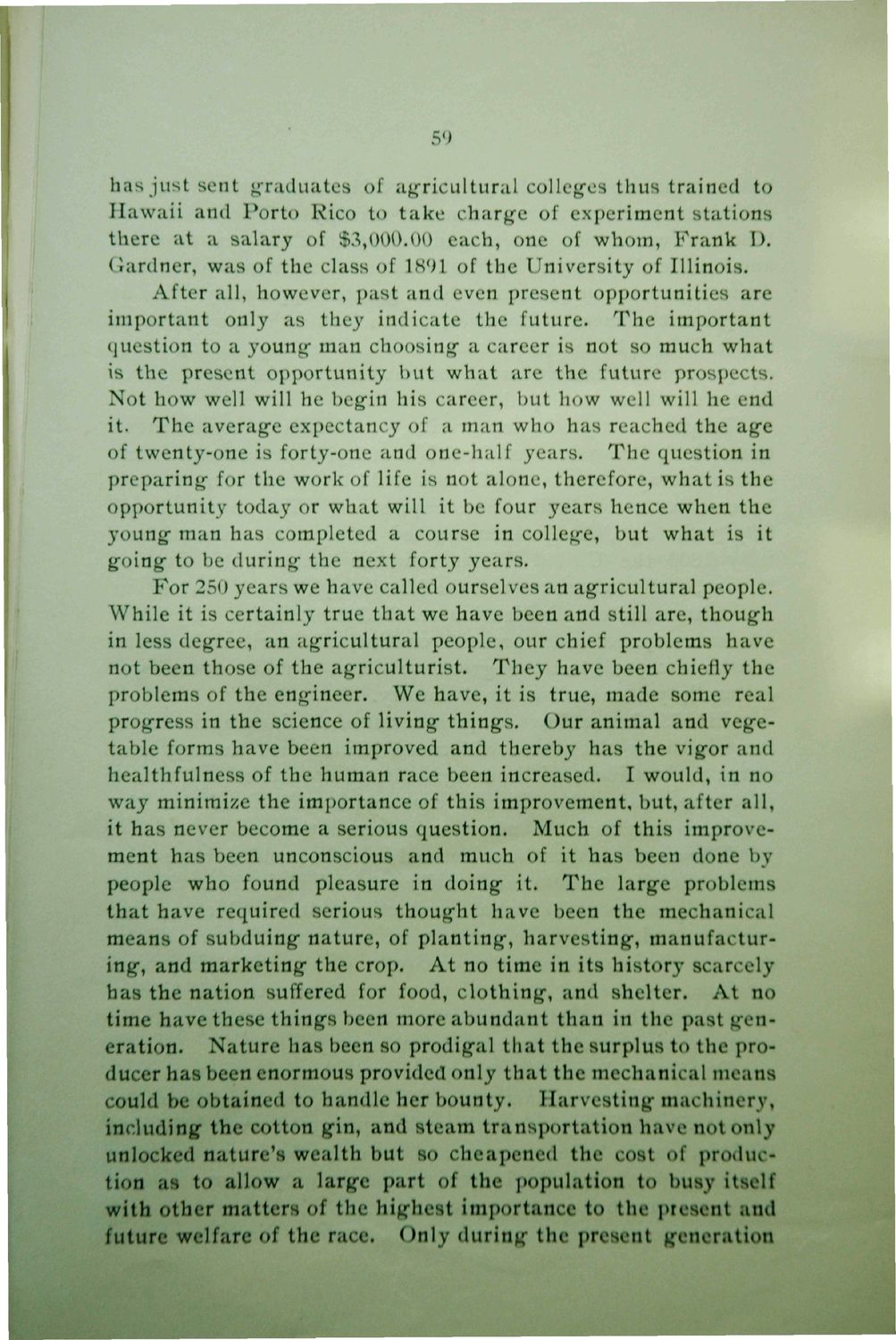| |
| |
Caption: Dedication - Ag Building
This is a reduced-resolution page image for fast online browsing.

EXTRACTED TEXT FROM PAGE:
50 has just sent graduates of agricultural colleges thus trained to Hawaii and Porto Rico to take charge of experiment stations there at a salary of $3,000.00 each, one of whom, Frank D. Gardner, was of the class of 1891 of the University of Illinois* After all, however, past and even present opportunities are important only as they indicate the future. The important question to a young man choosing a career is not so much what is the present opportunity but what are the future prospects. Not how well will he begin his career, but how well will he end it. The average expectancy of a man who has reached the age of twenty-one is forty-one and one-half years. The question in preparing for the work of life is not alone, therefore, what is the opportunity today or what will it be four years hence when the young man has completed a course in college, but what is it going* to be during the next forty years. For 250 years we have called ourselves an agricultural people. While it is certainly true that we have been and still are, though in less degree, an agricultural people, our chief problems have not been those of the agriculturist. They have been chiefly the problems of the engineer. We have, it is true, made some real progress in the science of living things. Our animal and vegetable forms have been improved and thereby has the vigor and healthfulness of the human race been increased. I would, in no way minimize the importance of this improvement, but, after all, it has never become a serious question. Much of this improvement has been unconscious and much of it has been done by people who found pleasure in doing it* The large problems that have required serious thought have been the mechanical means of subduing nature, of planting, harvesting, manufacturing, and marketing the crop. At no time in its history scarcely has the nation suffered for food, clothing, and shelter. At no time have these things been more abundant than in the past generation. Nature has been so prodigal that the surplus to the producer has been enormous provided only that the mechanical means could be obtained to handle her bounty. Harvesting machinery, including the cotton gin, and steam transportation have not only unlocked nature's wealth but so cheapened the cost of production as to allow a large part of the population to busy itself with other matters of the highest importance to the present and future welfare of the race. Only during the present generation
| |